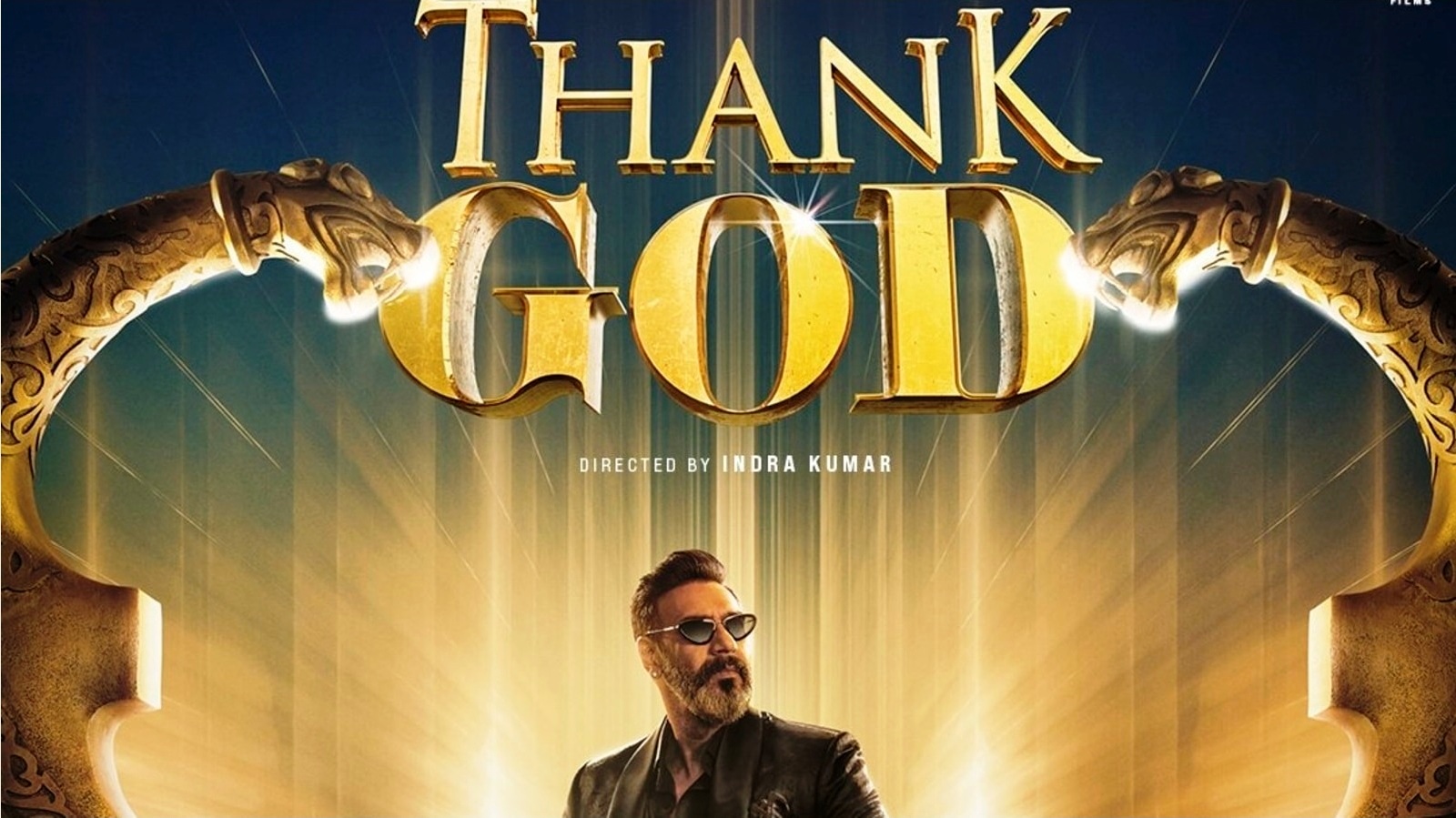Recently, I watched two films in theatres — Bhool Bhulaiyaa 3 and Singham Again. While both might have their audiences, I found myself disconnected. The loud music, fast cuts, and shaky camera work left me exhausted rather than engaged.
So, I turned to Thank God (2022) at home. Hesitant at first, but being an old schooler I was pleasantly surprised. Despite its commercial failure, I found it to be a light-hearted and entertaining film with a meaningful moral.
This film may not resonate with those who seem more attuned to the fast-paced, spectacle-driven narratives dominating contemporary cinema.
Yet, for someone like myself, an unapologetic “Old Schooler,” steeped in a deep appreciation for stories that prioritize values over mere visual stimulation, it offers a rich, thoughtful experience that despite its commercial shortcomings, offers something profound.
It is this meditative pace that I, as a fan of Indra Kumar’s craft, hold in high regard, for it reminds me of an era when films were not mere distractions, but invitations to explore our existence.
I can see a certain grace and warmth with heartfelt explorations of humanity seen in Indra’s earlier films. The film spoke to me on a deeper level. Here’s why.
The movie weaves together themes of life, death, morality and, blending humour with emotional depth. Though sometimes melodramatic and predictable, its core message is strong.
It looks at the decisions we make and the results that come from them, all happening in a playful, yet meaningful, heavenly world.
Ayaan after a tragic accident, finds himself in a celestial realm, where Lord Chitragupt (Ajay Devgn) presents him with a series of rounds — games that will determine his fate.
In the first round, he is asked to roll a dice to decide whether he deserves to return to life. When asked about his past, fear leads him to lie.
The lie quickly backfires, showing how decisions made out of fear can trap us in a cycle of regret. This scene emphasizes that dishonesty, even when motivated by fear, rarely provides relief but creates conflict.
A touching moment in the film comes when Ayaan reflects on a childhood memory. He recalls his mother eating mango kernels badly. This scene invites us all to reconsider our outlook and understand other’s points of view.
It reminds the audience that family and emotional bonds hold more value than material success.
Later, Ayaan is shown a mirror that reflects his past actions. This moment forces him to face his regrets and the consequences of his choices.
In another round, Ayaan must choose between selfish ambition and the well-being of his family. It’s a powerful reminder that love and emotional support matter more than wealth or personal achievement.
In the final round, there rises a situation where Ayaan must choose between his desires and what’s best for others. This becomes the true test of his character.
The metaphor of the black and white balls in the movie represents the struggle between good and bad, light and dark, and virtue and vice. It’s a universal theme, seen in many spiritual traditions. The black ball symbolizes bad actions, while the white ball represents virtuous deeds.
Life is a constant balancing act between these two forces. True wisdom doesn’t come from avoiding the black ball or choosing the white one.
Instead, it’s about understanding the grey areas at the times when the right decision isn’t clear. Wisdom is found in navigating life’s complexities with integrity, empathy, and compassion.
Choosing between the black and white balls is not just about avoiding bad actions or seeking good ones. It’s about recognizing that life is rarely black and white. Most situations are filled with nuance.
Wisdom comes from making the best decision even when the path is unclear. Each choice, whether good or bad, offers opportunity.
Thank God reminds us gently about how our choices shape our lives. True happiness doesn’t come from chasing success or avoiding failure, but from making decisions that align with integrity, compassion, and love for others.
The game of black and white balls is a metaphor for the choices, we face daily. True wisdom lies not in avoiding mistakes but in embracing black and white and growing through each.
The movie’s deliberate pacing, character-driven narrative, and moral introspection might feel slow or overly sentimental to those accustomed to instant gratification and high-octane entertainment.
It is a film rooted in morality, yet executed with humour and introspection, far removed from the more superficial, fleeting narratives that often dominate the box office. It requires engagement, introspection, and certain patience.



0 Comments